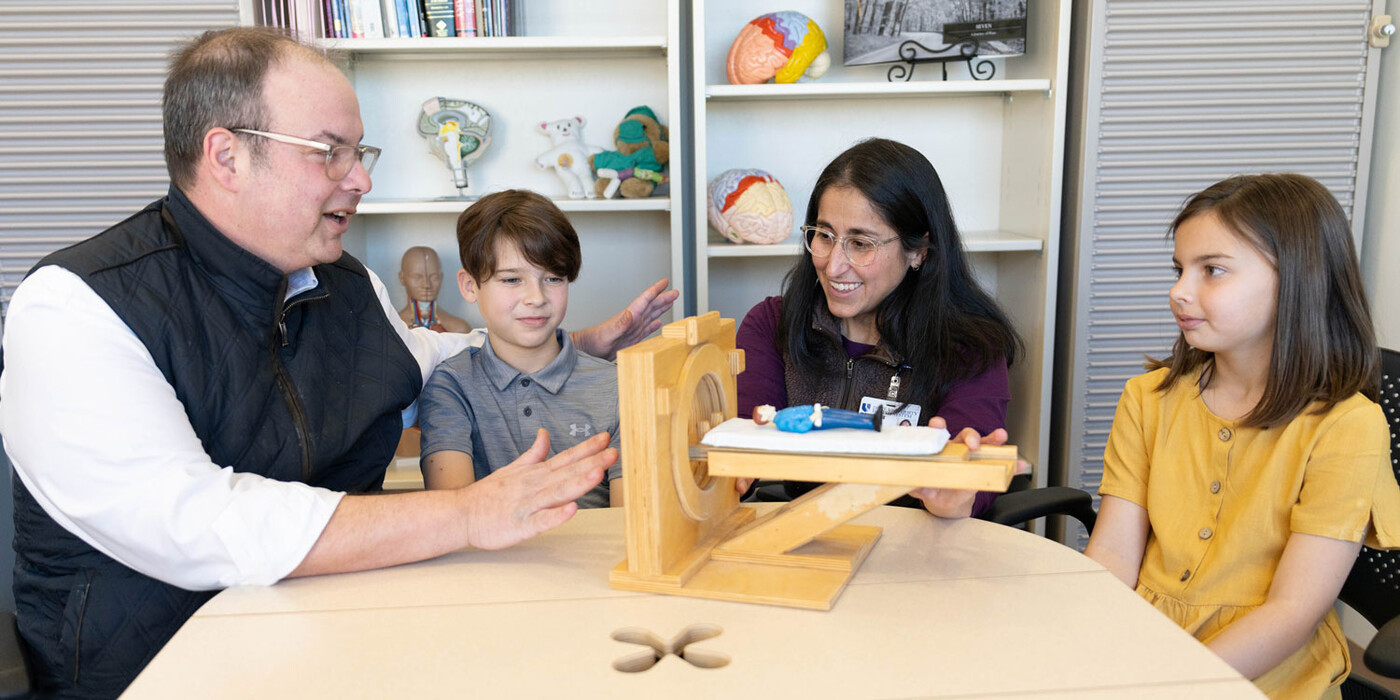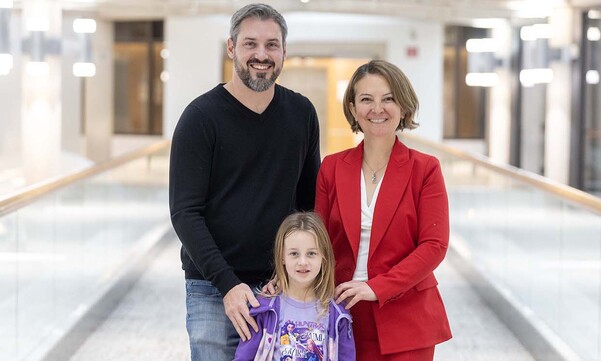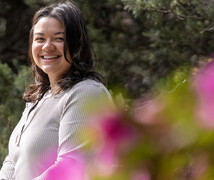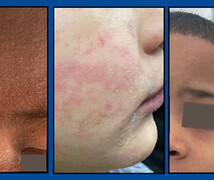Seth Cuni, a single dad, lived with tongue cancer for months without telling his two young children. “I decided this is my problem, and I can do this alone. Well, I couldn’t.” After talking to a medical family therapist at the Duke Cancer Institute where he receives treatment, Cuni and his children met with a child and adolescent life specialist who helped his family through this journey. “Your kids have the right to be involved, he said. “I wish that I had done it a lot sooner.”
Helping Families Make Sense of the Cancer Journey
Jean Hartford-Todd, a child and adolescent life specialist with the Duke Cancer Patient Support Program, talks to families before, during, and after a parent’s cancer treatment. Sometimes she works with kids and their parents together. Other times she meets directly with teens.
Hartford-Todd uses activities and props to start conversations. She helps younger children answer the question, “What is cancer,” by having them blow bubbles in a cup to simulate the process of cells dividing as cancer grows. She explains that medicines try to stop the cancer bubbles from growing and even make the bubbles disappear.
“We talk about how cancer is a spot of sickness in the body that tries to get bigger," she said. "We use medicines to make it smaller. Whatever the parent is undergoing for treatment, we imitate using the bubbles. If the parent expects to have surgery, we scoop the bubbles out of the cup and talk about what surgery is.”
Encouraging Open Conversations
Hartford-Todd tells parents there is more to talk about than the possibility of death. She advises parents to talk with their children about the side effects they experience, like fatigue, nausea, or hair loss to help them understand what’s happening. “It’s important for kids to understand that this is a normal part of the treatment,” she said. “It’s not that anything is going wrong. And that in the case of hair loss, it grows back.”
If a parent is scheduled for an MRI (magnetic resonance imaging), Hartford-Todd shows kids a picture of the room and the machine where the imaging occurs. She encourages them to play with a wooden model of the machine, including a little bed and a doll, while everyone talks about the parent’s experience. Hartford-Todd also helps kids cope by making tranquility tubes filled with water, glitter, beads, and colorful rubber bands.
Cuni’s eight-year-old son Roman said the tranquility tube helped relieve his stress about his father’s treatment. “We made those things that you shake up and the stuff falls inside,” he said. “It helps you think a little better. And take your mind off of worry. I’ve learned it’s okay to worry, but you don’t always have to worry.”
Program Makes a Tough Time a Little Easier
Cuni said the program has made a tough time in his life a little easier. “I can’t say cancer has been a wonderful journey, but it’s been a lot easier with my kids, and my ex-wife, on board. It was wonderful to have them involved in the whole process. I can’t speak highly enough about how Duke changed me from being a single parent, back to a family,” Cuni said.




